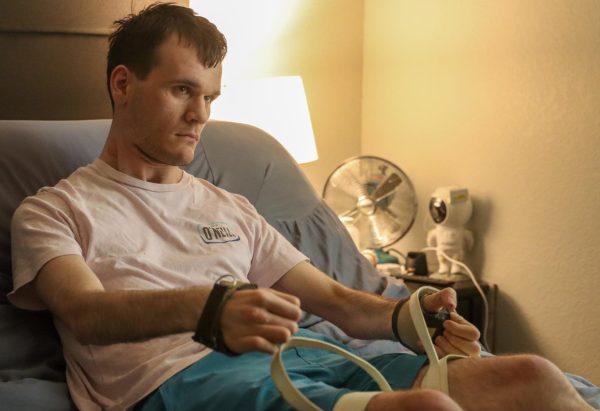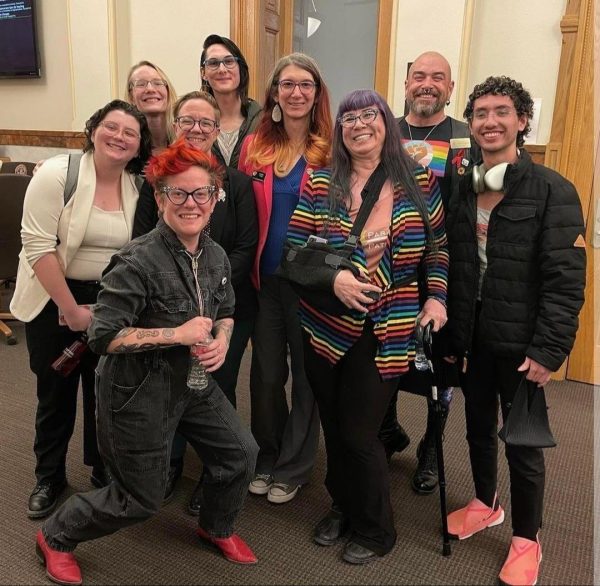College Hesitation
As colleges change rules to combat coronavirus, high school seniors navigate on their own
Graphic by: Keithan Sharp
High school seniors navigate on their own as college requirements change due to COVID-19.
November 19, 2020
In a normal year, seniors would be staying up late cramming for their ACT tests, planning visits to scenic college campuses and learning how to apply to their dream school around this time of year. However, 2020 is not a normal year. The coronavirus pandemic has brought the college search process to a halt, leaving many seniors feeling helpless and lost.
ACT tests, once a paramount test required for college acceptance, have been canceled and postponed. Senior Lauren Weber has had her ACT test canceled on three separate occasions.
“I don’t know what to do, and I’ve emailed my counselors many times, and they always direct me to Naviance, but I don’t know how to work Naviance,” Weber said. “Not having my ACT scores or a transcript, I’m lost with what to do.”
Weber is not alone, and counselor Kristi Dixon said this is always a stressful time for seniors, even without a global pandemic disrupting the process.
“This is one of the biggest decisions that [seniors] will have to make so far in their lifetime, so it’s always a critical moment, and there’s a certain level of stress that comes with that every year,” Dixon said.
Dixon said students who feel lost or don’t know what to do should simplify the process and ask for help.
“Let’s look at the schools that if it wasn’t for COVID, what was your plan, and we start there,” Dixon said. “Then let’s add COVID back into the mix and see how that impacts what your choices are, and we just put them together.”
Senior Egan Li had his ACT test canceled once, but said he was able to join his brother at a different test location that was not canceled.
“Normally, I would have to have a ticket to the testing center, which I didn’t have this time because they switched it at the last second, but they were only able to switch because I went with my brother,” Li said. “In most situations, people would just have their test canceled.”
Li has since moved on to exploring his college choices through virtual tours, the newest tool colleges have used to attract prospective students.
“I’ve been doing virtual visits because that’s what most colleges are offering at the moment,” Li said. “If I get accepted, I hope next year in the summer … I could visit some college campuses.”
To combat the ACT cancellations, many colleges are going test-optional, meaning students don’t have to submit their scores to be considered.
“I would really like to see more schools go test optional permanently,” Dixon said. “I would like to see more schools make that commitment to ‘I’m going to stop making decisions about the rest of your life, because of what you spent three hours doing on a Saturday.’”
Li said he also doesn’t mind the test-optional policies, but additional changes would be necessary to distinguish high-achieving students.
“I feel like some schools may need to adjust their policies for scholarships and base them on GPA and grades and AP classes,” Li said. “I know a lot of schools are doing that, but some more schools should be doing that.”
Even though most schools are test-optional, Weber is still skeptical about the fairness of these new approaches.
“I think it’s an unfair advantage because [students who took the ACT] have more opportunities to get a higher score, and since I signed up for only a certain location, I can’t take the test,” Weber said.
Many students are concerned that if they don’t submit their ACT score, they will be at a disadvantage even if the colleges are test-optional, but Dixon said this does not appear to be the case.
“[Colleges are] not going to penalize you if you don’t submit your score,” Dixon said. “If students are able to say ‘I was planning to take the test, but I couldn’t,’ I really feel good that these schools are backing up what they’re saying; they’re talking the talk and walking the walk.”
Some colleges have made headlines recently for charging the same tuition for a virtual education as they do for on-campus learning, leaving seniors with yet another variable to consider when applying this year.
“I think colleges who are still having you pay the same amount for an in-person class when it’s online is an absolute scam,” Weber said. “If you’re not getting the face-to-face education that they’re promising you, and you’re doing it all by yourself outside of class, I think that it’s ridiculous for them to charge you the same amount.”
Weber said the biggest challenge for her has been finding resources to keep her updated on the ever-changing college application process.
“I’ve asked [the counselors] for step-by-step processes, and I really don’t feel like they’ve helped at all,” Weber said.
However, Dixon said a college information night was offered to all senior parents and students via Zoom, but only a handful of students participated.
“I was kind of bummed at our numbers [for the college info night]; I think there were 41 people in attendance and four of those were the counselors, so I was like, ‘huh, where is everyone?’” Dixon said.
The counseling department has usually spoken to every senior during their English class by October, but this year, they have had to find new ways to communicate with seniors.
“We’ve been trying to kind of figure out where we can fit, so we’re trying to drop lessons into TIPS,” Dixon said. “I’m really trying to post any information that I get on Canvas because you guys kind of have to live your lives there right now.”
No matter how seniors are figuring out college applications, Dixon said it is a totally legitimate reason to feel stressed.
“It’s really scary, it’s overwhelming,” Dixon said. “There’s no concrete right answer and that makes people really nervous.”
This story was originally published on BVSW News on November 2, 2020.

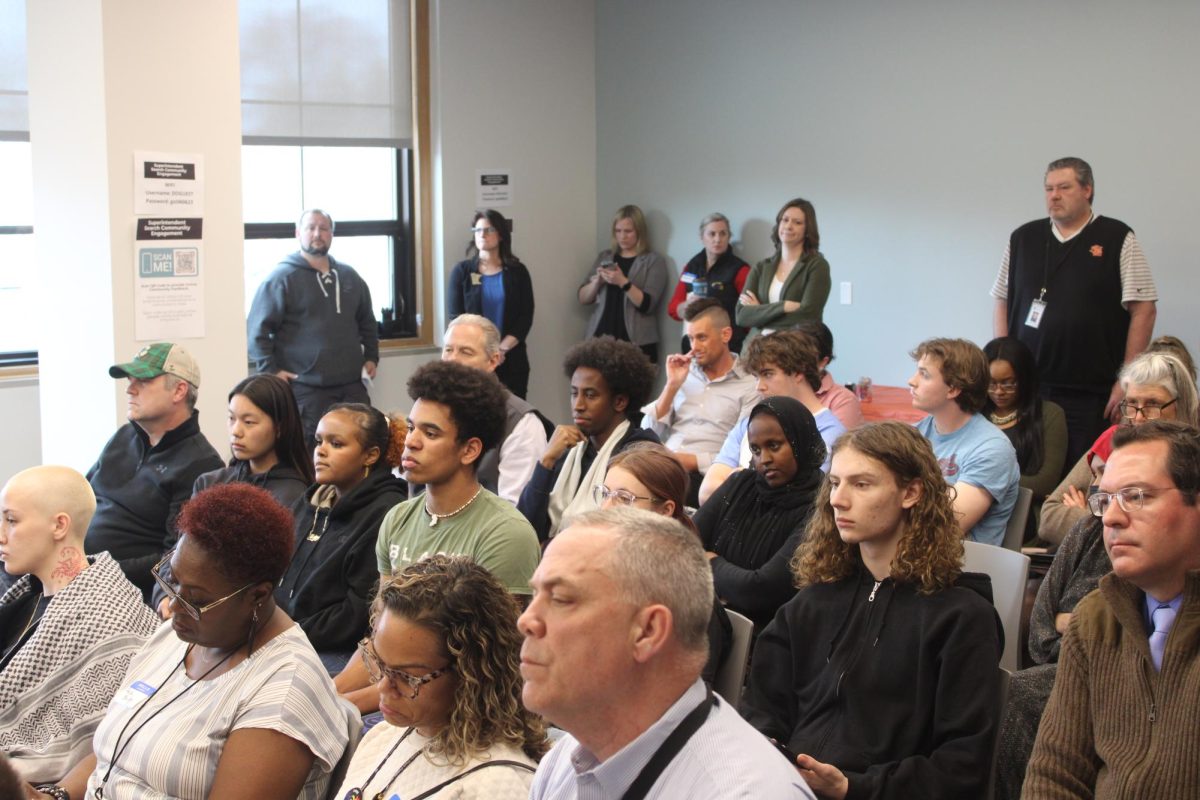

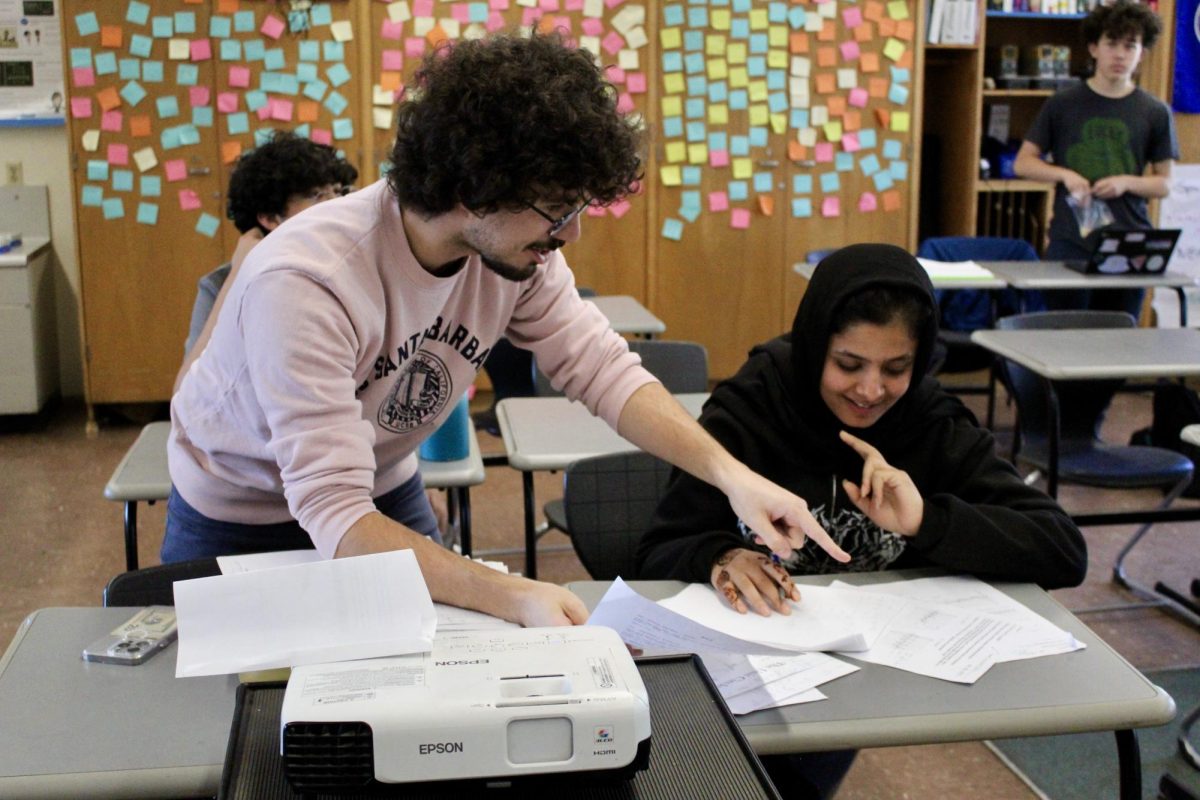



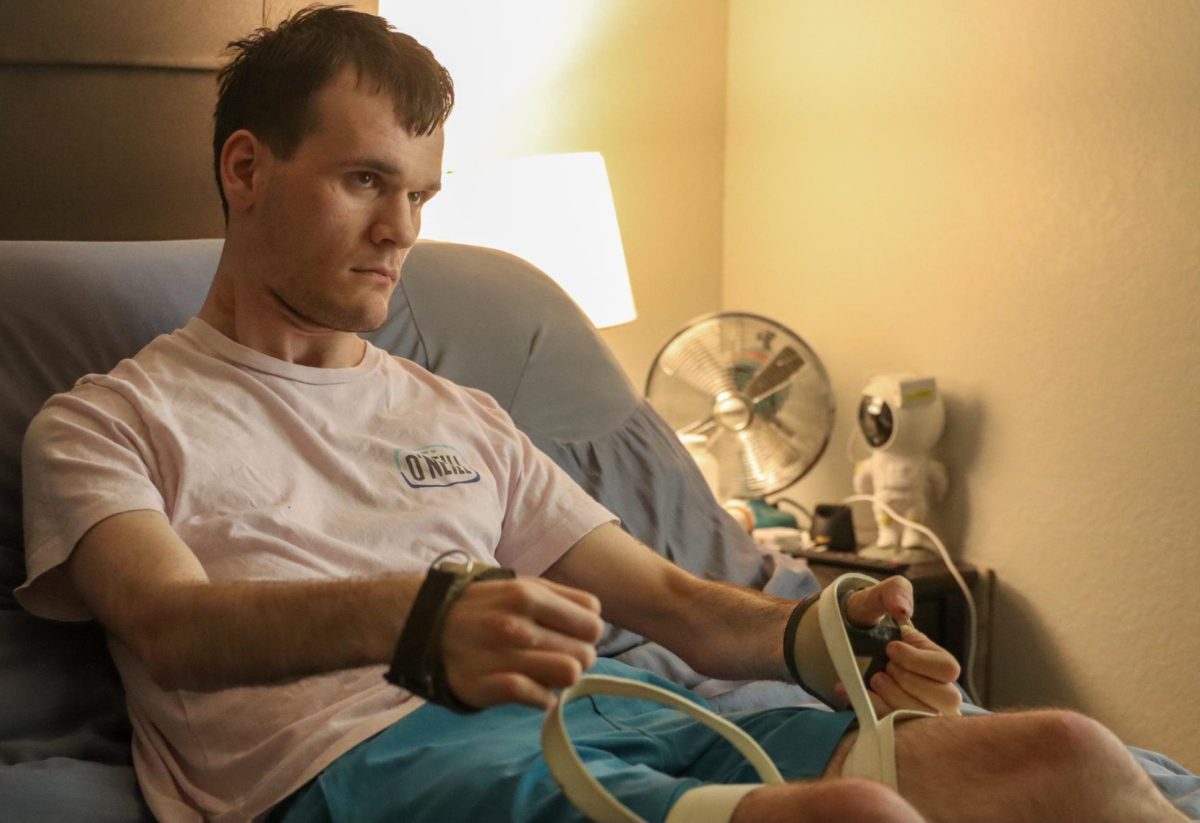



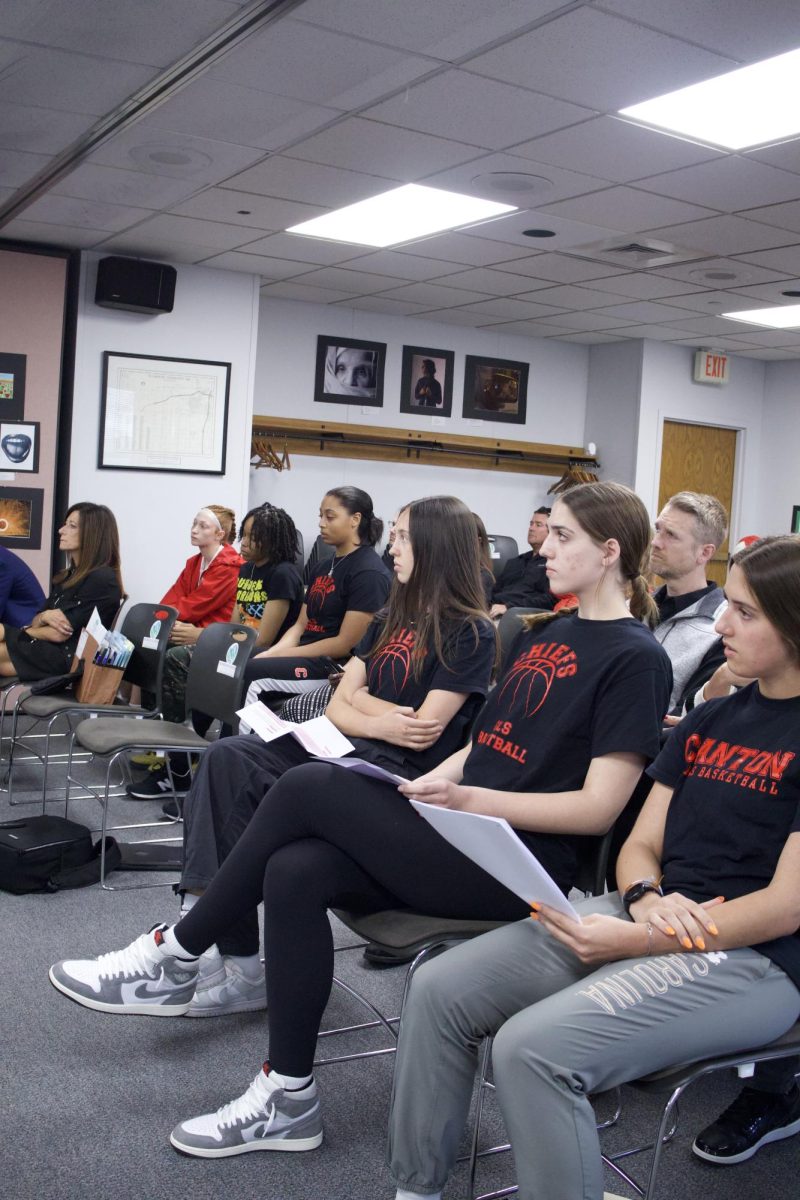

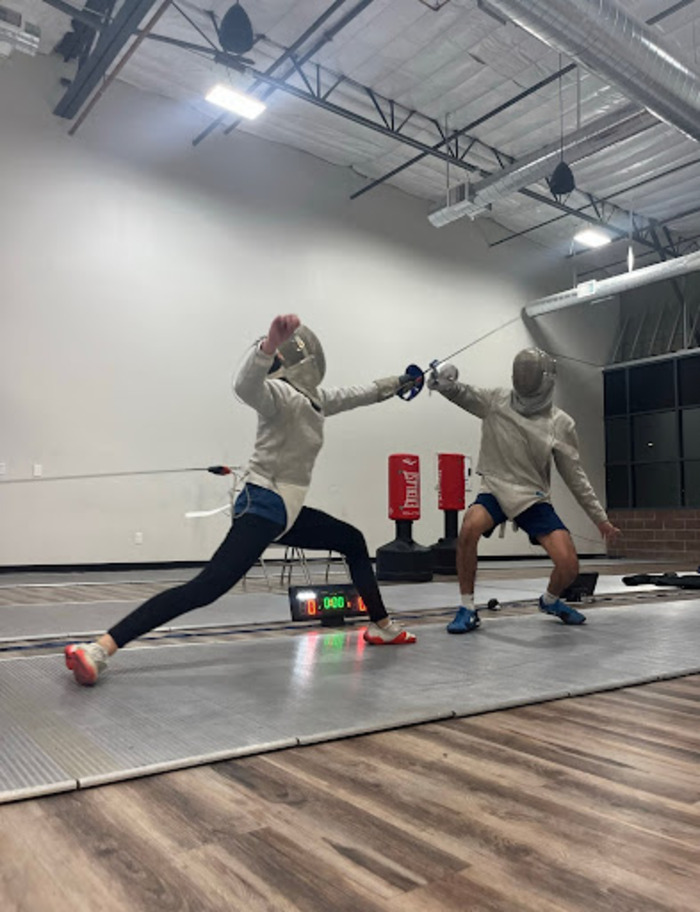
















![IN THE SPOTLIGHT: Junior Zalie Mann performs “I Love to Cry at Weddings,” an ensemble piece from the fall musical Sweet Charity, to prospective students during the Fine Arts Showcase on Wednesday, Nov. 8. The showcase is a compilation of performances and demonstrations from each fine arts strand offered at McCallum. This show is put on so that prospective students can see if they are interested in joining an academy or major.
Sweet Charity originally ran the weekends of Sept. 28 and Oct. 8, but made a comeback for the Fine Arts Showcase.
“[Being at the front in the spotlight] is my favorite part of the whole dance, so I was super happy to be on stage performing and smiling at the audience,” Mann said.
Mann performed in both the musical theatre performance and dance excerpt “Ethereal,” a contemporary piece choreographed by the new dance director Terrance Carson, in the showcase. With also being a dance ambassador, Mann got to talk about what MAC dance is, her experience and answer any questions the aspiring arts majors and their parents may have.
Caption by Maya Tackett.](https://bestofsno.com/wp-content/uploads/2024/02/53321803427_47cd17fe70_o-1-1200x800.jpg)
![SPREADING THE JOY: Sophomore Chim Becker poses with sophomores Cozbi Sims and Lou Davidson while manning a table at the Hispanic Heritage treat day during lunch of Sept 28. Becker is a part of the students of color alliance, who put together the activity to raise money for their club.
“It [the stand] was really fun because McCallum has a lot of latino kids,” Becker said. “And I think it was nice that I could share the stuff that I usually just have at home with people who have never tried it before.”
Becker recognizes the importance of celebrating Hispanic heritage at Mac.
“I think its important to celebrate,” Becker said. “Because our culture is awesome and super cool, and everybody should be able to learn about other cultures of the world.”
Caption by JoJo Barnard.](https://bestofsno.com/wp-content/uploads/2024/01/53221601352_4127a81c41_o-1200x675.jpg)







